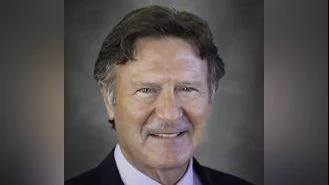Illinois State Representative Steven Reick | Representative Steven Reick (R) 63rd District
Illinois State Representative Steven Reick | Representative Steven Reick (R) 63rd District
In the early hours of Wednesday, as Illinois legislators worked towards a 4:30 AM adjournment, Frank Sinatra’s classic "In the Wee Small Hours of the Morning" echoed through the chamber. The Illinois legislature passed its largest budget in state history, totaling over $53 billion. This budget surpasses the first one passed under Governor J.B. Pritzker by $13 billion.
As is customary, the budget was drafted behind closed doors by Democrats without input from the minority party or public. Critics have raised concerns about questionable priorities and unsustainable spending levels.
Early on Wednesday morning, unprecedented events unfolded in Springfield. Stories of disorganization and division within the House Democratic majority were substantiated when chaos ensued during votes on critical budget-related bills.
At approximately 3:00 AM, after passing the Budget Bill and Budget Implementation Bill (BIMP) by narrow margins, legislators turned to a Revenue Bill intended to raise nearly $1 billion in new taxes. This bill was essential for supporting previously approved legislation but required passage to proceed.
During a procedural verification move, it was discovered that Assistant Majority Leader Aaron Ortiz’s vote had been recorded despite his absence from the chamber. His vote was subsequently removed, causing the bill to fail due to insufficient votes.
According to House rules, a motion to concur with a Senate bill receives only two chances for passage (Rule 72). When brought up again, one Republican's absent vote led to another failure as it brought down the tally just below requirement after another legislator switched their vote from "Yes" to "No".
Faced with dwindling time and no plan for passing this crucial bill under their own rules, Democrats decided to suspend them altogether—a move criticized by many including Representative Patrick Windhorst who made an impassioned speech against such tactics.
Ultimately at 4:30 AM, Democrats managed to pass nearly $1 billion in new taxes with minimal votes necessary before adjourning hastily. Due to mismanagement of this tax increase vote process some key policy initiatives did not come up for discussion or voting.
House Speaker Chris Welch struggled despite having 78 members in his caucus while Governor Pritzker secured only 65 supportive votes out of those available—leading critics questioning his broader political ambitions given these challenges at state level governance itself.
Though a budget was indeed passed amidst considerable turmoil; whether it effectively addresses pressing issues remains debatable especially considering potential complications arising from narrowly securing controversial tax hikes within legislative framework fraught with internal conflicts among ruling party members themselves.





 Alerts Sign-up
Alerts Sign-up